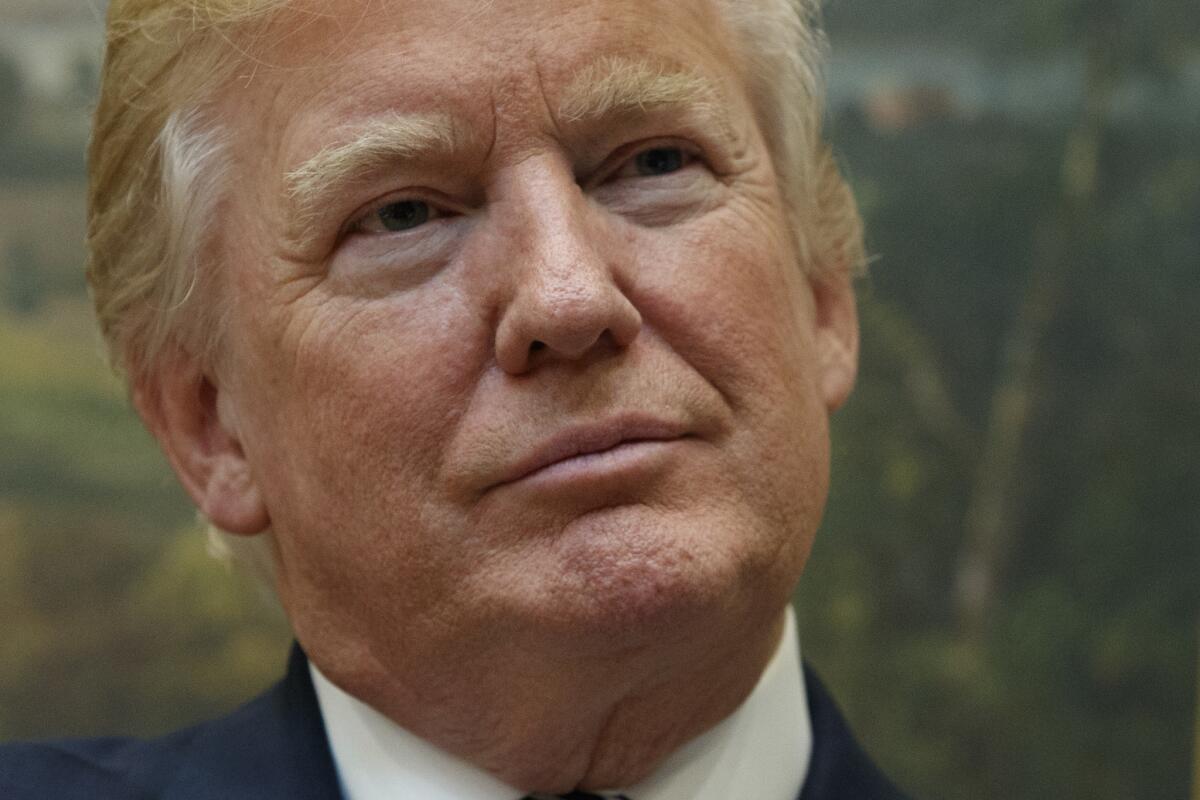Trump’s pullout from Afghanistan is rushed and self-serving

- Share via
President Trump has decided to end his presidency with a flourish by withdrawing many of the U.S. troops deployed in Afghanistan and Iraq. The drawdown, announced Tuesday by acting Secretary of Defense Christopher Miller, is alarmingly abrupt, and it preempts what should have been a decision by President-elect Joe Biden.
The announced reduction in U.S. troops in Afghanistan is especially troubling. The U.S. has more than 4,500 forces training and advising the Afghan military and engaging in counter-terrorism operations there. Trump plans to cut that number to 2,500, after suggesting last month that all of the troops would be home by Christmas. Meanwhile, U.S. forces in Iraq will be reduced from 3,000 to 2,500. The target date for the reductions is Jan. 15, five days before Biden is sworn in.
We oppose a sudden withdrawal from Afghanistan, but not because we believe U.S. forces should remain perpetually in that country. We welcomed the Trump administration’s willingness to negotiate with the Taliban. In February, those talks produced a tentative agreement linking withdrawal of remaining U.S. forces to a commitment by the Taliban to prevent Al Qaeda, Islamic State and other militant groups from using Afghan territory to launch attacks on the United States.
However, further negotiations, including those between the Taliban and the Afghan government, have been halting and not very productive. Trump’s drawdown would deprive the U.S. and the Afghan government of leverage in those talks. A rushed troop cut also could leave U.S. bases in Afghanistan vulnerable to being overrun.
Trump acted after firing Secretary of Defense Mark Esper, who reportedly wrote a memo opposing drastic troop reductions, pointing to continuing violence, potential dangers to remaining troops and an adverse effect on the peace negotiations. The president also disregarded advice from the secretary-general of the North Atlantic Treaty Organization — an alliance that has played a key role in Afghanistan — and Senate Majority Leader Mitch McConnell (R-Ky.).
It’s understandable that, almost two decades after U.S. forces were deployed to Afghanistan in the aftermath of the Sept. 11, 2001 terrorist attacks, Americans would tire of this commitment, even though the number of U.S. troops there now is minuscule compared with the 100,000 deployed in 2010. Regardless of what happens in the negotiations with the Taliban, the U.S. might eventually decide to remove remaining troops from Afghanistan and explore other ways to protect this nation from terrorists who might seek to operate there.
But that decision should be made by Biden, who, echoing Trump, has talked about ending “forever wars.” And it should be made deliberately and in a way that doesn’t suggest political calculation. Given Trump’s pattern of confusing his political interests with those of the U.S., it’s hard to resist the suspicion that this decision is designed primarily to allow him to claim that he brought the troops home and pocket that accomplishment for a possible presidential campaign in 2024.
More to Read
A cure for the common opinion
Get thought-provoking perspectives with our weekly newsletter.
You may occasionally receive promotional content from the Los Angeles Times.









